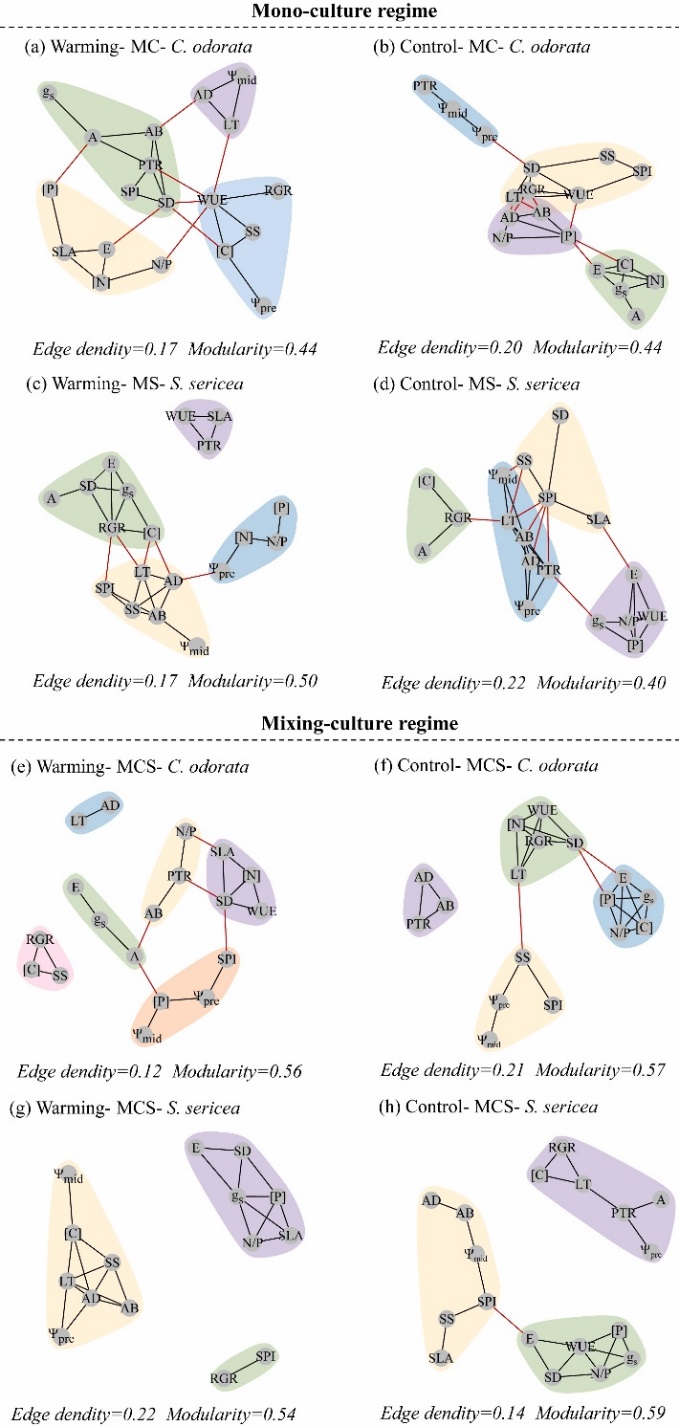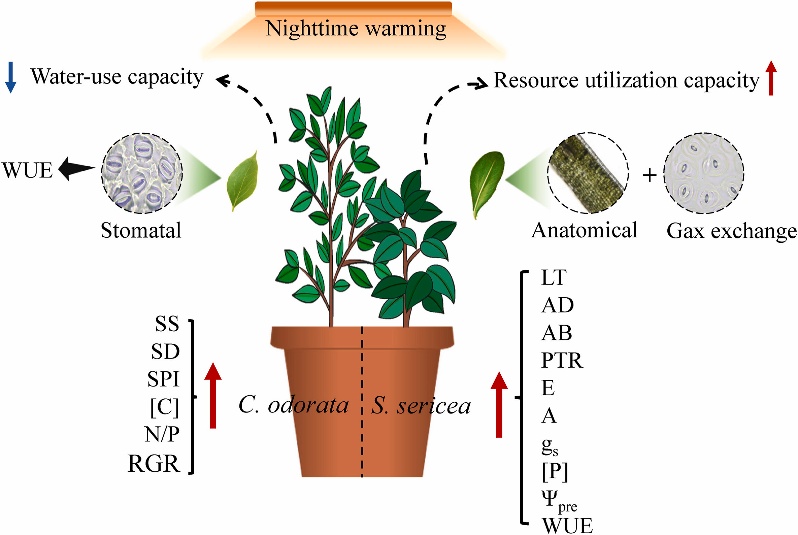Scientists discover nighttime warming impedes invasion of Chromolaena odorata into tropical coral islands
Global warming has become increasingly pronounced due to climate change and anthropogenic activities. The nighttime warming caused by asymmetric global warming is mainly manifested as a reduction in the diurnal temperature range. The previous studies suggest that nighttime warming can stimulate plant respiration, leading to a net loss of carbon and being detrimental to plant growth; however, the physiological and ecological impacts of nighttime warming on invasive plants remain unclear. Compared with continental habitats, tropical coral islands are characterized by a small diurnal temperature range. In recent years, many invasive plants have invaded the tropical coral islands and induced serious damages. Exploring the physiological and ecological responses of invasive plants to tropical coral island habitats and their impacts on native plants is of great scientific significance for the prevention and control of invasive plants into tropical A research team from the South China Botanical Garden of the Chinese Academy of Sciences, conducted a nighttime warming (3°C) + sea sand experiment to simulate the tropical coral island habitat.
The researchers compared the differences in the responses of plant functional traits between the invasive species Chromolaena odorata and the native plant Scaevola sericea in simulated tropical coral islands. The study found that nighttime warming could significantly reduce the resource utilization efficiency of C. odorata, but S. sericea could increase its resource utilization efficiency by changing leaf structural traits and maintain a relatively stable relative growth rate. The result reveals that constructing S. sericea communities on tropical coral islands can help prevent invasions by C. odorata.
This study was published in the international academic journal Journal of Environmental Management, with the title of “Nighttime warming impedes invasion of Chromolaena odorata into tropical coral islands”. SUN Zhangmei, a doctor's student at South China Botanical Garden, Chinese Academy of Sciences, is the first author, with associate researcher ZHANG Lingling as the co-first author. Prof. KUANG Yuanwen and Prof. WANG Jun are the co-corresponding authors. This study was funded by the National Key Research and Development Program of China and the National Natural Science Foundation of China. Paper link: https://authors.elsevier.com/a/1ld9P14Z6twjai

Fig 1. Effects of nighttime warming on the netwoks of the 19 functional traits of C. odorata and S. sericea under mono- and mixing-culture regimes.(image by ZHANG et al)

Fig 2. Competition model between C. odorata and S. sericea under nighttime warming.(image by ZHANG et al)
File Download: